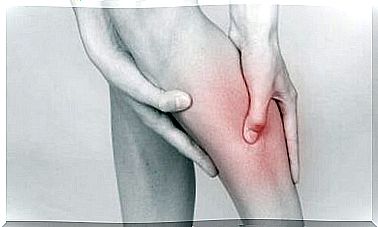Treatments For Antibiotic-Related Diarrhea

Usually, diarrhea is a symptom that indicates that you are suffering from an illness. For example, gastroenteritis. Sometimes it is also a warning of possible food poisoning. Read all about antibiotic-related diarrhea.
However, many people go to their doctor because an antibiotic causes this symptom in them. This is one of the reasons why you should always get antibiotics by prescription.
As the article Basic concepts for the rational use of antibiotics in ENT indicates (Spanish link), diarrhea is a side effect of a number of antibiotics, such as for example:
- aminoglycosides
- clindamycin
- macrolides
- penicillin
These drugs are quite aggressive to the gastrointestinal system.
Why do antibiotics cause diarrhea?

The reason antibiotics can cause diarrhea is their own toxic effect on the gut, as mentioned in the article Diarrhea caused by antibiotics (Spanish link).
However, the reason for this lies in the fact that these types of drugs alter the gut flora, reducing the beneficial bacteria, while others, such as Clostridium difficile bacteria, multiply and cause diarrhea.
However, you can analyze many components of antibiotics to know the possibilities of diarrhea if you consume them. These elements, some of which we mentioned above, are:
- Clindamycin
- ampicillin
- amoxicillin
- Cephalosporins
To properly diagnose that the antibiotics are causing your diarrhea, it’s important to see your doctor so they can order the right tests. These consist of undergoing a stool analysis and in the most severe cases, a colonoscopy.
Symptoms and possible treatments
While diarrhea can be an antibiotic-derived symptom that can affect children as well as adults and the elderly, it is much more common in the elderly.
Diarrhea is even common in people who have just had abdominal surgery or who do not follow a very healthy diet. Find out below the symptoms associated with taking antibiotics:
- Liquid and frequent stools.
- In the most severe cases, there may be blood in the stool.
- Acute abdominal pain.
- Fever and general malaise.
- dehydration.
Older people on antibiotics who have these symptoms should see a doctor. This is because in severe cases, dehydration potentially leading to bowel perforation can occur requiring immediate surgical intervention.
Therapy

A person suffering from antibiotic-associated diarrhea should follow their doctor’s advice. If the situation is not considered serious, the doctor will initiate a follow-up that will not consist of stopping antibiotics at any time. In other cases , the doctor may recommend the replacement of the prescribed drug.
What if the diarrhea is severe? You can try changing the antibiotic. However, in extreme cases , doctors advise the patient to stop taking it and even take antidiarrheal drugs.
You should remember to follow your doctor’s dietary instructions and to hydrate constantly, always with a bottle of water on hand. Taking probiotics can also be helpful in these cases.
Prevention
To avoid antibiotic-related diarrhea, it is essential to avoid self-medication. In many countries, it is even illegal to sell these drugs to customers unless they have a medical prescription. Therefore, instead of self-medicating, you should always see your doctor if you are not feeling well.
If you come into contact with someone who has diarrhea, you must prevent the spread. The best way to do this is to wash your hands after touching the affected person. If you work in a healthcare facility, it is essential that you wear gloves.
Have you ever been diagnosed with antibiotic-related diarrhea? Do you usually self-medicate? We hope this article has made you more aware of the need to see your doctor, rather than taking measures that could jeopardize your gastrointestinal health without first consulting a professional.









